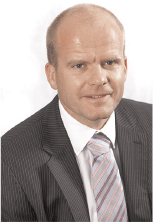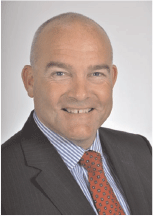Floating Super Pallet (FSP): a smart piggy back solution
Michel SeijDockwise.
The APPEA Journal 54(2) 489-489 https://doi.org/10.1071/AJ13062
Published: 2014
Abstract
The FSP is Dockwise’s new transport equipment specially developed for modular transport. With a lot of development in modular build LNG plants, this is Dockwise’s answer to deal with industry demands. Using the FSP as intermediate transport medium, a conventional transport is transformed into a piggyback transport able to deal with operational constraints and introduce logistical flexibility. The FSP’s dimensions are 60 m × 40 m × 6 m making it suitable to transport modules of 50–6,000 tons. These dimensions make these pallets perfectly fit closed stern heavy transport vessels (HTV). LNG plants are often constructed at remote locations that are restricted by shallow water and underdeveloped Material Offloading Facilities (MOF). The construction costs for a MOF to receive full size HTVs are often high. Using an FSP as intermediate medium deals with these limitation due to its maximum draft of 5 m. A conventional module transport consists of loading (roll-on, RO), voyage and discharge (roll-off [RO]). In the piggyback variant, a float-on and float-off (FLO-FLO) is added to this transport cycle. Although this introduces an extra operation, the actual transport vessel is not yet required at site during loading, seafastening and quarantining. Furthermore, introducing flexibility during the RO-RO operation, where sets of FSPs are available while the vessel is at sea with another set. In addition, this largely reduces vessel waiting time to improve the overall vessel use and minimise demurrage. It opens the way forward for novel contracting environments for module logistics.

Michel Seij trained as a Naval Architect from Delft University of Technology. He joined Dockwise in 2001. After working in various technical and operational positions, he is now managing Dockwise’s engineering team. Since 2010 he has been heavily involved in developing a new vessel concept which will enter into service in 2012. |

Ben is a Naval Architect and holds a master degree from Delft University in Shipping and Innovation. He started off his career as a policy advisor on shipping economics for the Dutch Government and as a ship finance banker for ING Bank. This was followed by a long career in ship new building at Damen Shipyards Group in The Netherlands and in offshore platform fabrication at Heerema Fabrication Group. Ben joined Dockwise in 2006 and then moved to Perth in 2008. His passion for sailing, logging four Atlantic crossings, and several national titles, nowadays has to compete with the unique Australian experience of outback camping and off-road driving. In-between al the niceties of Australia, he also saw the challenges of this far and remote continent, and spend a lot of time on improving module logistics and on developing the Floating Super Pallet concept. His presentation is about module logistics, when you are at the end of a very long supply chain. |


